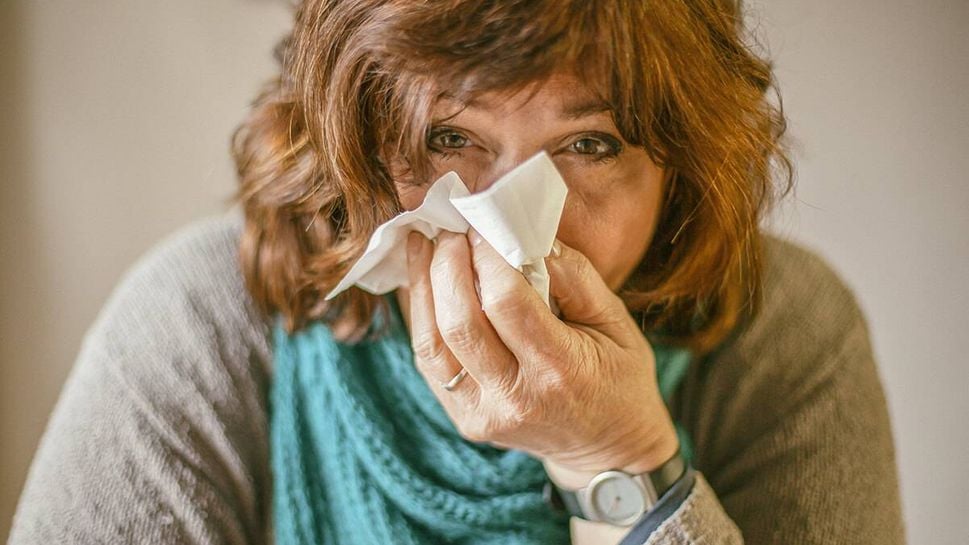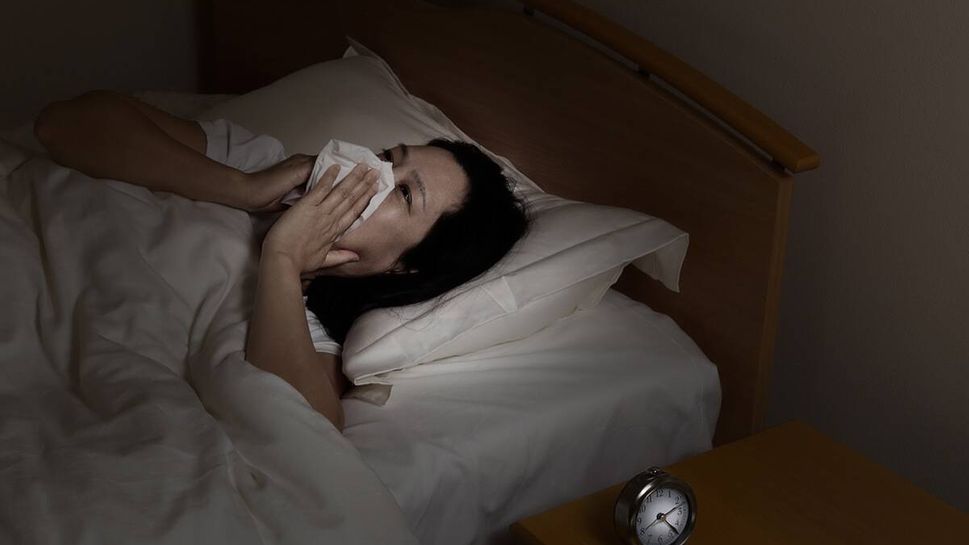5 Things That Can Prolong a Cold
Feel better faster by avoiding these common mistakes
1 of 7

Are You Making Your Cold Worse?
(This article originally appeared on Grandparents.com.)
Cough. Sneeze. Wheeze. Cold season is among us, and there is nothing fun about it. The congestion, stuffed and dripping nose, sore throat, fatigue, headache — you just want to make it go away, pronto! Colds can linger for anywhere from two to 10 days. (If symptoms persist for more than 10 days, seem unusually severe or you have a temperature higher than 101 degrees, see a doctor.) Did you know you might be doing things that prolong the misery? View the slideshow to see five of them, plus a few words about antibiotics.

1. Not Getting Enough Sleep
A Carnegie Mellon University study found that participants with less than seven hours of sleep were almost three times more likely to develop a cold than those with eight hours or more of sleep. Why? Researchers say that sleep bolsters the immune system, helping it better fight viruses.

2. Not Drinking Enough Water
If you let yourself get too dry, you can exacerbate your cold symptoms. First, you need to replace liquids lost through fever, dripping nose, drying from decongestants or open mouth breathing. And second, when you're sick, your body goes into over-drive making mucus. The thick, sticky nature of mucus means it doesn't readily move out of the body. Water provides moisture that helps loosen mucus and get it out. Drink lots of water, juice or — yes, it really works — chicken soup. Use a clean humidifier when you sleep.

3. Overusing Medications
Don’t think that if one dose of medicine is good, two doses must be better or try to combine them in ways that haven’t been physician-approved. You risk having side effects that can complicate your recovery.
In general, it is better to use medications that target one specific symptom — decongestants for nose; cough medicines for cough and NSAIDs (non-steroidal anti-inflammatory drugs) for pain. The multiple symptom medications may contain drugs you don’t need, which ups the chance of side effects (dizziness, diarrhea, insomnia, headache or nausea). These side effects can make it harder for you to bounce back when you are already fighting a viral infection.
“In general, such medications may not work as well after a few days of regular use, but it is not predictable and is very variable,” said Dr. Aaron Glatt, executive vice president and chief administrative officer for New York's Mercy Medical Center and a spokesman for the Infectious Diseases Society of America.
One more thing: If your nose is congested, you can use decongestant nasal spray, but if you use it for more than five days, it can cause a rebound effect, meaning your congestion may actually get worse. (You may want to try saline nasal mist instead.)

4. Smoking or Inhaling Secondhand Smoke
Every time you inhale cigarette smoke, it affects your lung function and has the potential to make your cold far worse, said Glatt. It is often believed that smokers can't clear away the virus because smoking hinders their system. According to one study, however, smokers can clear the virus but their system overreacts, rather than underreacts, and that hyperactivity prolongs the illness. “Don't smoke in general, but especially while you have a cold,” advised Glatt.

5. Getting Overly Stressed
If you feel sick, listen to your body. Don’t be a martyr and feel you have to carry on as usual. Besides exposing everyone around you to your germs, you are preventing your body from healing as quickly as it can. “I have seen anecdotal evidence that when people are under stress, their immune system doesn’t work as well,” said Dr. Matthew S. Ellman, director of Yale Internal Medicine Associates and associate professor of internal medicine at Yale University School of Medicine.

And a Word About Antibiotics...
Colds are caused by viruses, not bacteria, so antibiotics don't help. However, complications of your cold — such as sinus infection, bronchitis, pneumonia or ear infection — are bacterial in nature, so antibiotics will work for them. Put another way: If you use antibiotics on the common cold, you will get no benefit and you may get problematic side effects such as allergic reactions, intestinal problems and diarrhea. “Also, unnecessary antibiotic use is creating more bacteria that is becoming resistant or untreatable,” said Ellman.
Grandparents.com is a lifestyle website, social media community & peer group that unites & connects America's 70 million Grandparents to the best information and premier products & services just for them. Our goal is to promote well-being and give timely information on what really matters to you, from health and money to family and relationships to travel and retirement.

